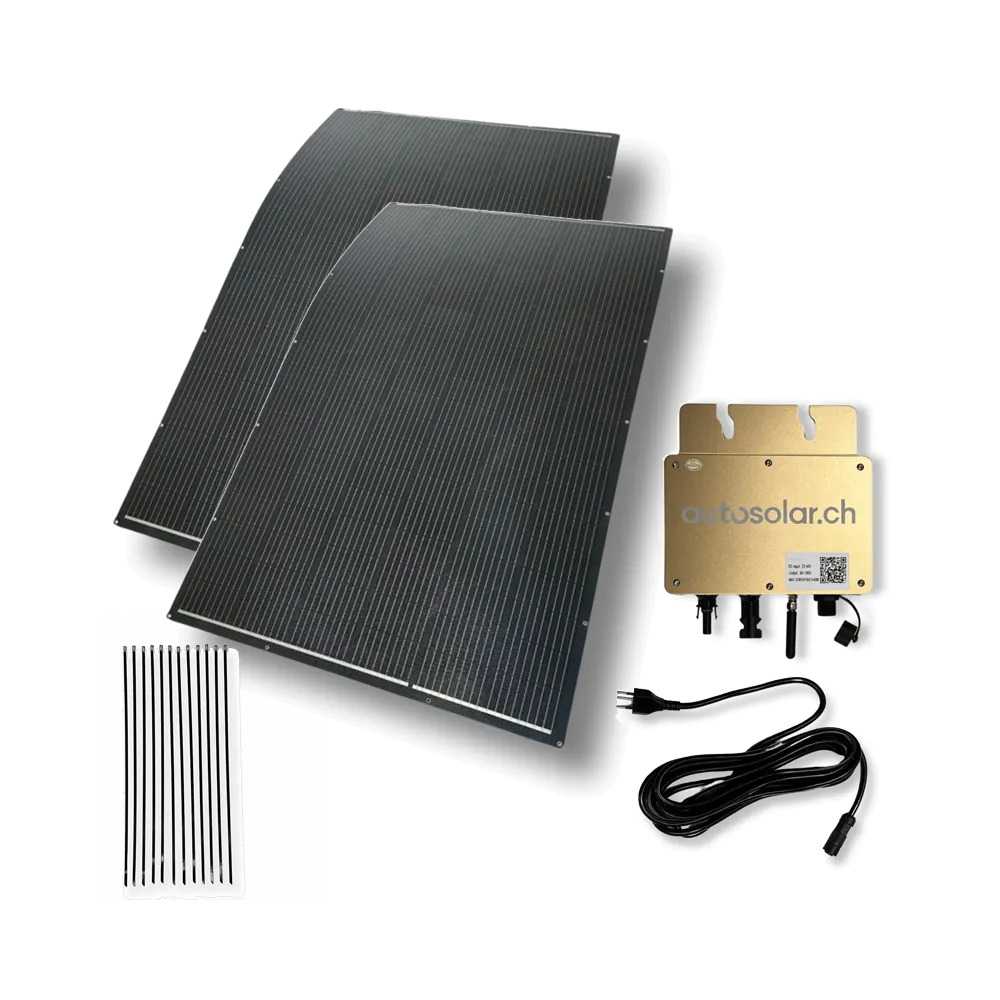Balcony power plants and balcony solar systems are becoming increasingly popular as they offer an environmentally friendly and cost-effective way to meet your own electricity needs. In this article, we will discuss the advantages and disadvantages of balcony solar systems and address frequently asked questions.
.jpg)
What is a balcony solar power plant?
A balcony solar system is a compact photovoltaic system that is installed on the balcony or terrace and converts sunlight into electrical energy. They are a good option for people who live in rented apartments or do not have space for larger solar systems. The products from https://autosolar.ch/en/ offer a large selection of balcony solar systems, inverters, batteries and other accessories.
Advantages of balcony solar power plants
- Environmentally friendly : With a balcony solar system you can generate your own green electricity and thus reduce CO2 emissions.
- Cost Savings : You can lower your electricity bill by using self-generated solar power and buying less electricity from the grid.
- Easy Installation : Balcony solar systems are easy to install and typically do not require a permit or extensive remodeling.
- Independence : You become less dependent on rising electricity prices and power outages.
Disadvantages of balcony solar power plants
- Performance : The performance of a balcony solar system is lower compared to a roof solar system. This means you may not be able to meet all of your electricity needs.
- Location Dependency : The efficiency of a balcony solar system is highly dependent on the orientation and location of the balcony. A south-facing balcony is best, while north-facing balconies yield less.
- No electricity storage : Balcony solar systems are usually designed for self-consumption and have no storage. This means that excess solar power cannot be stored and used later. However, you can use a solar generator from AutoSolar.ch to store the electricity.

frequently asked Questions
What can I do with a balcony solar system?
You can operate many of your household appliances with a balcony solar system as long as the generated power is sufficient. This includes refrigerators, computers, televisions and other devices in standby mode.
What does a 600 watt balcony power plant bring?
A 600 watt balcony power plant can ideally generate up to 600 kWh per year. However, this depends on the orientation of the balcony and the amount of sunlight.
What is the benefit of a 600 watt solar system per day?
The performance of a 600 watt solar system varies depending on the solar radiation and location. On average, however, you can expect around 1.5 to 2.5 kWh per day.
Balcony solar: advantages and disadvantages, and frequently asked questions
Balcony solar systems offer a practical way to generate clean energy while reducing electricity costs. In this article, we'll look at the pros and cons of balcony solar systems and answer some common questions to help you make the best decision for your situation. As an expert in the field, https://autosolar.ch/en/ offers a variety of balcony solar products to meet your needs.
Advantages of balcony solar systems
- Energy saving : With a balcony solar system you can generate your own electricity and thus directly reduce your electricity bill.
- Environmental friendliness : You help reduce CO2 emissions by using clean energy and reducing the consumption of fossil fuels.
- Easy Installation : Balcony solar systems are easy to install and do not require extensive structural changes.
- Flexibility : Balcony solar systems are equally suitable for tenants and owners and can be easily dismantled and taken with you if you move.
Our recommendation: Balcony solar power plant 670W with assembly material from AutoSolar. Install, plug in, enjoy.
Disadvantages of balcony solar systems
- Dependence on weather and location : The performance of your balcony solar system depends on the solar radiation and the orientation of your balcony. A south-facing balcony is ideal, while a north-facing balcony can be less efficient.
- No energy storage : Balcony solar systems are usually designed for self-consumption and do not have an energy storage. This means that excess energy cannot be stored and is not available during power outages.
- Power limitation : In Switzerland, the limit for self-installation of balcony solar systems is 600 W. Larger systems require a permit and the involvement of an installer.
Frequently asked questions about balcony solar systems
- What can I do with a balcony solar system? You can operate electrical appliances in your household, such zB refrigerators, televisions, computers and washing machines. However, the performance of the balcony solar system is limited, so you may not be able to operate all the devices at the same time.
- What is the benefit of a 600 W balcony power plant? A 600 W balcony power station can generate up to 600 kWh per year, depending on solar radiation and location. With an average electricity price of CHF 0.3384 per kWh, you can save up to CHF 203 per year.
- How useful are balcony solar systems? Balcony solar systems make sense if you want to generate your own electricity and reduce your electricity bill while helping to reduce CO2 emissions.
- Why is the output of balcony solar systems limited to 600 W? The limit of 600 W in Switzerland is based on the regulations of the Federal Office of Energy (SFOE) and the Grid Connection Ordinance (NAV). This regulation is intended to ensure safety and protect the distribution grids from overload. Larger systems require a permit and the involvement of an installer.
- Can I also install a balcony solar system on a flat roof? Yes, balcony solar systems can also be installed on flat roofs. However, the appropriate mounting structures must be used to ensure the optimal orientation and tilt angle of the solar modules.
- Do I have to register my balcony solar system? In Switzerland, all photovoltaic systems, including balcony solar systems, must be registered with the local grid operator. Registration is necessary to ensure connection to the grid and to receive the feed-in tariff.
- Do I need a permit to install a balcony solar system? In Switzerland, you do not need a permit to install balcony solar systems up to 600 W. However, larger systems require a permit and the involvement of an installer.
- How long does it take for the investment in a balcony solar system to pay off? The amortization period of a balcony solar system depends on various factors, such zB the performance of the system, the location, the power consumption and the electricity costs. In general, the payback period can range from 5 to 10 years.
Overall, balcony solar systems offer an environmentally friendly and cost-effective way to generate your own electricity and reduce your energy consumption. Consider the pros and cons and the specifics of your location to make the best decision for your situation. If you have any further questions or would like individual advice , please do not hesitate to contact the https://autosolar.ch/en/ team.















